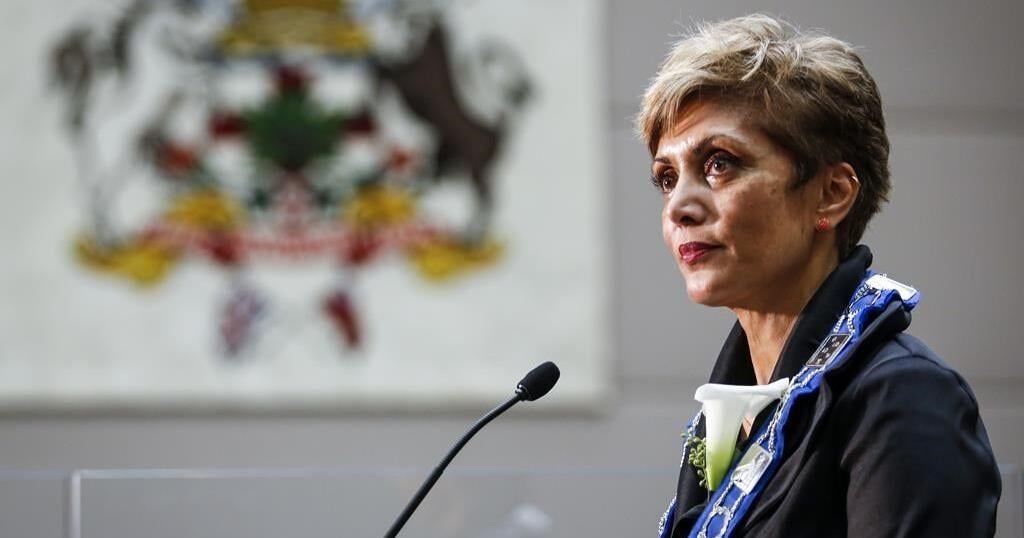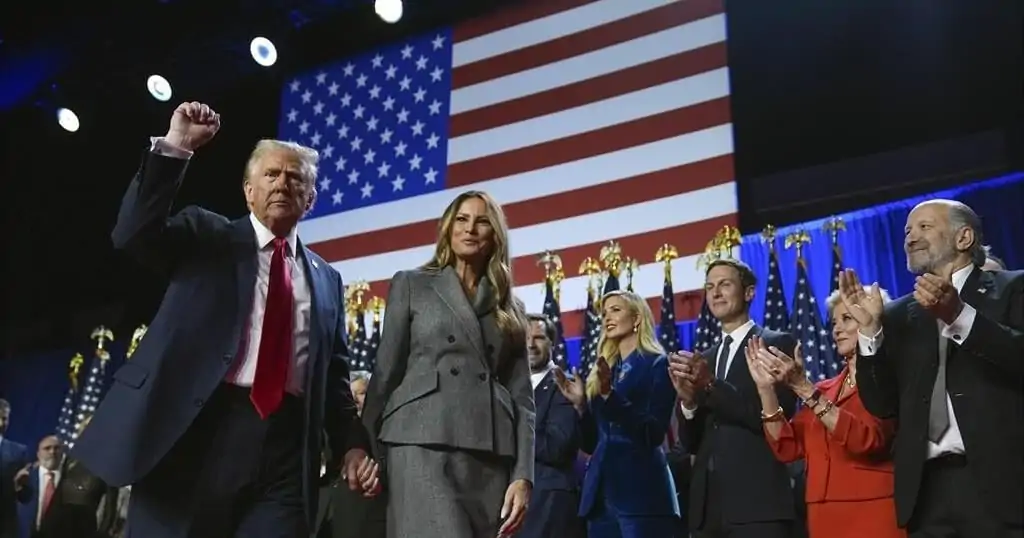EDMONTON – Calgary city council is set to face the fallout Tuesday of losing Alberta government funding for its Green Line light rail transit project, as Mayor Jyoti Gondek says it’s clear the province isn’t willing to budge on its rerouting demands.
Council is set to hear recommendations on how it could pay for the cost of abandoning the project and will mull over how it might transfer responsibility to the province.
While the city has already spent $1.4 billion on land acquisition, utility work and new rail vehicles, the full cost of killing the project in its current form is expected to become more clear.
“(The province) has the ability to impose, really, anything they want on us. And by imposing the wind-down of this project, they have saddled us with costs that I don’t believe we should have to bear,” Gondek said in an interview.
Transportation Minister Devin Dreeshen penned a letter to Gondek in early September saying the province would pull its $1.53 billion in funding from the $6.2-billion project if the city doesn’t rejig the line’s route and extend it farther south.
Among other changes, Dreeshen wants expensive downtown tunnelling off the table.
Gondek said such proposals have been studied and rejected, and subsequent meetings with Premier Danielle Smith’s United Conservative Party government haven’t moved the two parties to a compromise.
Dreeshen declined again Monday to say whether the province would backstop liabilities for delayed or cancelled contracts, but reiterated that he is working to get alternative proposals from an independent engineering firm.
“We will continue to collaborate with the City of Calgary and our federal partners to ensure an orderly transition from an expensive and high-risk project with extensive tunnelling to a new and longer above-ground alignment that will benefit many more Calgarians,” he said in a statement.
Council approved an updated, shortened line in July, with an added $700 million in costs to municipal coffers.
The premier has called the Green Line “the incredible shrinking project” and said it needs a complete rethink to be more cost-effective.
Speaking on her radio call-in show Saturday, Smith said she wants more direct political oversight of mega projects.
“I’d be looking to be quite a bit more involved than we were in the past,” the premier said.
Gondek said the only way forward is for the provincial government to oversee whatever project proposals it comes back with.
“In the world of the UCP government, it’s power and control. And they will leverage it to get what they want,” said Gondek.
The mayor said the city can’t afford to wait for more reports to begin another approval process. It’s too late for tweaks.
“If (the provincial government) wanted to delay things to figure out a solution, the time for that was July,” she said.
She added that the funding agreement for the Green Line with the federal and provincial governments expires March 31.
The dispute has become highly politicized, as former Calgary mayor Naheed Nenshi, who left city hall in 2021, became leader of the Opposition NDP in June.
Dreeshen has labelled the Green Line project the “Nenshi nightmare.” He has said the former mayor is responsible for mismanaging the project from the start and that it was never properly engineered.
Nenshi, in turn, has blamed Dreeshen for turning the project into a political football and putting jobs at risk.
The Calgary Construction Association has said the UCP’s decision undermines confidence in the reliability of government funding for major infrastructure developments across the province.
It has urged the province to reconsider.
Meanwhile, supporters of the Green Line held a rally in Calgary Monday, calling on political leaders to find a solution to see it built.
This report by The Canadian Press was first published Sept. 17, 2024.

























